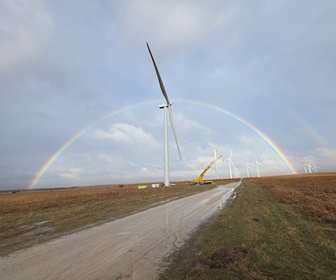Few large investors dominated the German wind auctions in 2017, while local community wind projects, so far drivers of the market, will hardly play a role any longer, without major changes to the regulations. The rules which were set up by the German government to protect community energy investors have failed to achieve this goal.
In addition, the NRW State government has created additional challenges which may lead to job losses and generally shrinking wind investment in the state. The onshore wind auctions introduced in Germany in 2017 are about to squeeze out small and community based investors – up to now the main drivers of the German wind market – and are favouring large investors. Although more than 95% of the successful bids are falling under the EEG’s legal definition of community power, more than one third of the successful projects was submitted by only one project developer which, like several others, made use of the legal privileges for community energy. Even the amendments to the auction scheme as introduced for 2018 are not expected to stop the traditional community energy actors from being the main losers. With the auctions, a system has been set up in which success is determined by market power and the ability to speculate. Community based investors are usually not able or willing to take part in such financial speculations, and, unlike utilities, they are not able to simply charge higher prices to end consumers. This is the conclusion of a report “Community Wind in North Rhine-Westphalia” launched by WWEA and the state Federation for Renewable Energy LEE NRW.









